

Cook Islands-registered Eagle S is alleged to have dragged its anchor along the seabed to damage an undersea cable.
Photo/AFP/Jussi Nukari
Seized Cook Islands-registered Russian vessel sparks security concerns
A tanker apprehended in Finland raises questions over role Pacific nations play in global maritime affairs.

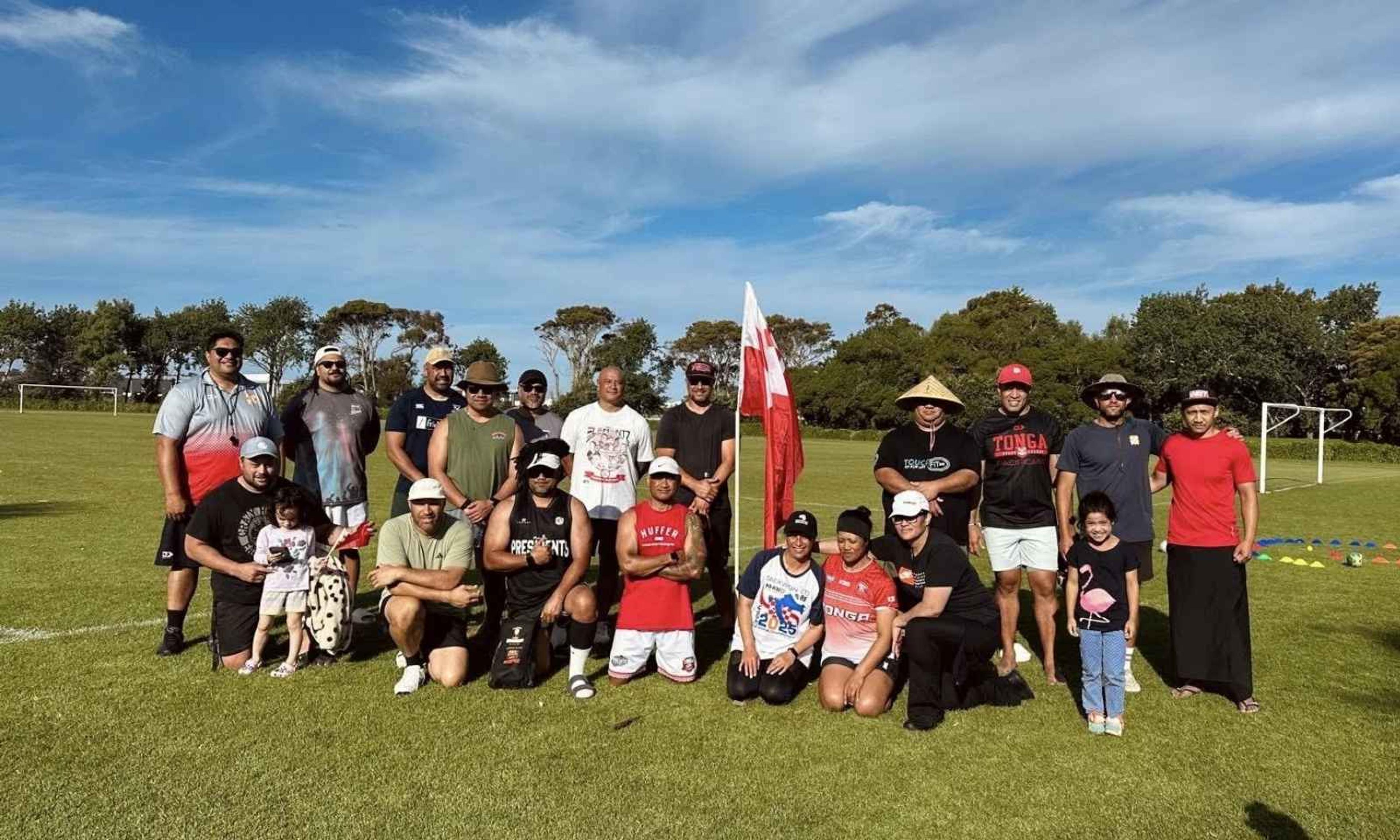
Tonga Touch Rugby Masters call on diaspora to pull on the red and white again

Sāmoan stars in Aotearoa NZ: Donell Lewis and Kennyon Brown tour with DJ Noiz
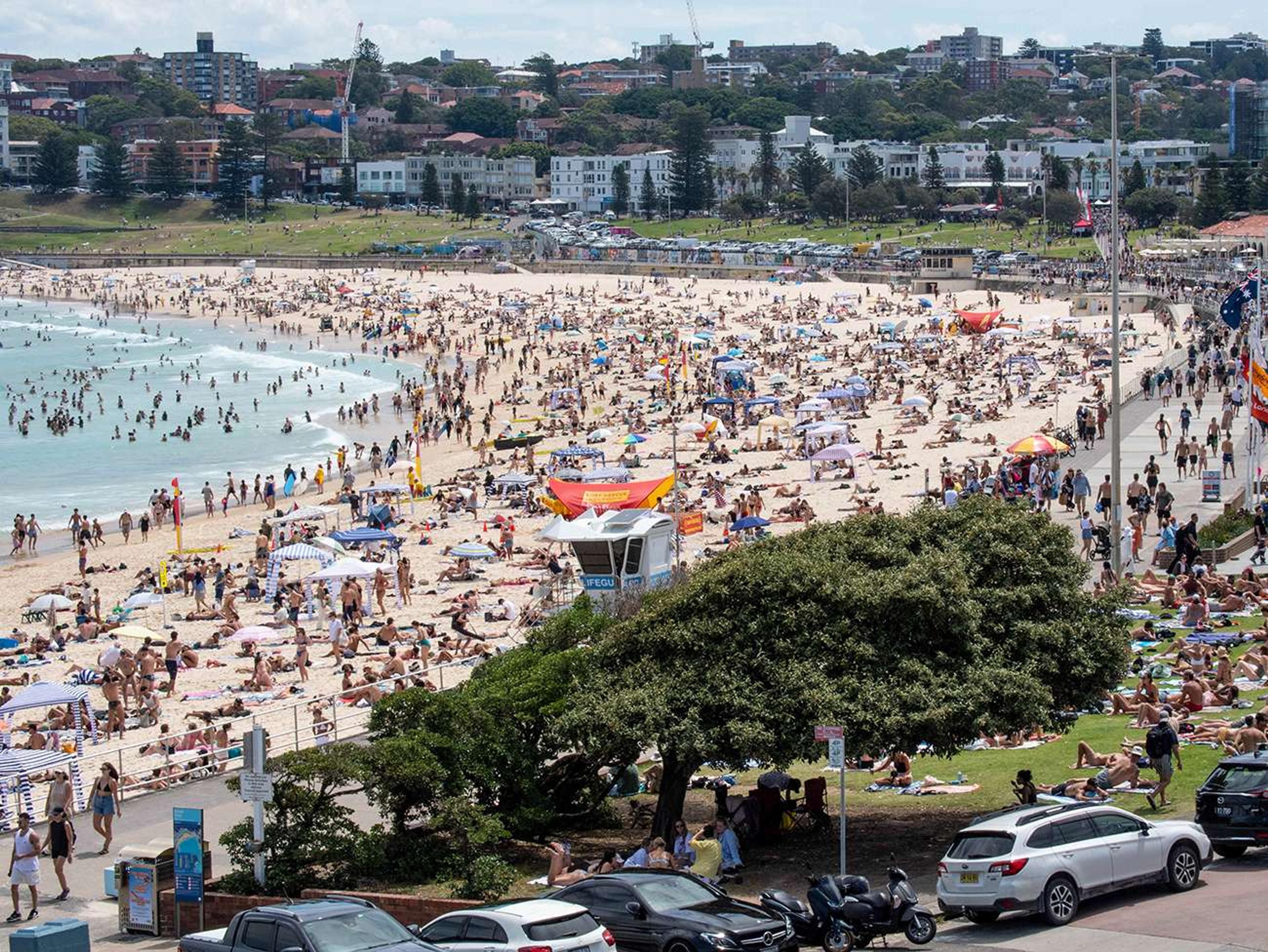
Pacific leaders call for unity after Bondi attack

The phone call that changed everything: Social worker’s new life after kidney transplant

Tonga Touch Rugby Masters call on diaspora to pull on the red and white again

Sāmoan stars in Aotearoa NZ: Donell Lewis and Kennyon Brown tour with DJ Noiz

Pacific leaders call for unity after Bondi attack
A Cook Islands-registered vessel has been seized by Finnish authorities, sparking international concerns about maritime security.
The oil tanker Eagle S, flying the Cook Islands flag, was apprehended by the Finnish coast guard and police in the early hours of Thursday.
The vessel is suspected of damaging the Estlink 2 undersea power cable connecting Finland and Estonia.
EU officials are calling this "the latest in a series of suspected attacks on critical infrastructure".
The ship is allegedly part of Russia's "shadow fleet" operations in the Baltic Sea.
The incident has drawn attention to the complex web of international shipping and the role of Pacific nations in global maritime affairs.
It highlights the far-reaching implications of ship registrations and the challenges faced by small island nations in regulating vessels flying their flags.
The Cook Islands operates an open ship registry. This practice, common among several Pacific nations, allows foreign-owned vessels to fly their flag, often attracting ships seeking more favourable regulatory environments.
Maritime Cook Islands cooperating
In a statement, Maritime Cook Islands (MCI), the organisation overseeing the shipping registry, confirmed that it is fully cooperating with the Finnish authorities and working closely with relevant national ministries to support the ongoing inquiry.
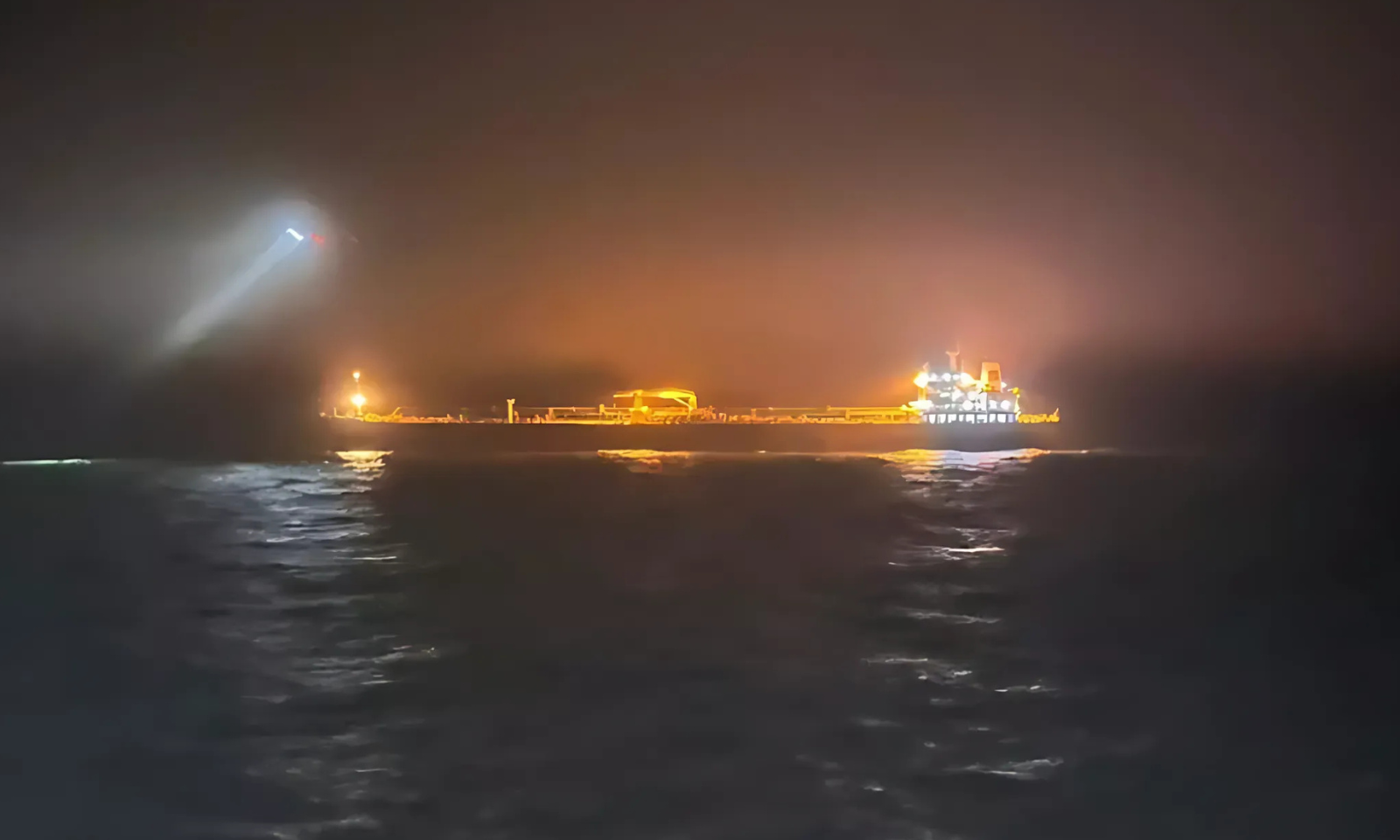
Maritime Cook Islands confirms it will cooperate fully with investigations into the incident involving Eagle S. Photo/Maritime Cook Islands
In parallel, MCI has launched a preliminary technical investigation; an expanded inspection of the MT Eagle S will take place as soon as feasibly possible.
"MCI remains fully committed to uncovering the root cause of this incident and will continue to work closely with all relevant authorities and stakeholders to ensure a thorough resolution," the statement said.
New Zealand not responsible - MFAT
A spokesperson for the Ministry of Foreign Affairs and Trade told RNZ that New Zealand is not responsible for the vessel.
The spokesperson said they knew about the incident but that New Zealand was not responsible for managing the Cook Islands shipping registry.
The Cook Islands self-governs in free association with New Zealand. It conducts its affairs, but Aotearoa assists in foreign affairs, disasters, and defence.
New Zealand shared concerns with the Cook Islands government over its shipping registry being used to aid Russia's shadow fleet and the impact this could have on its international reputation.
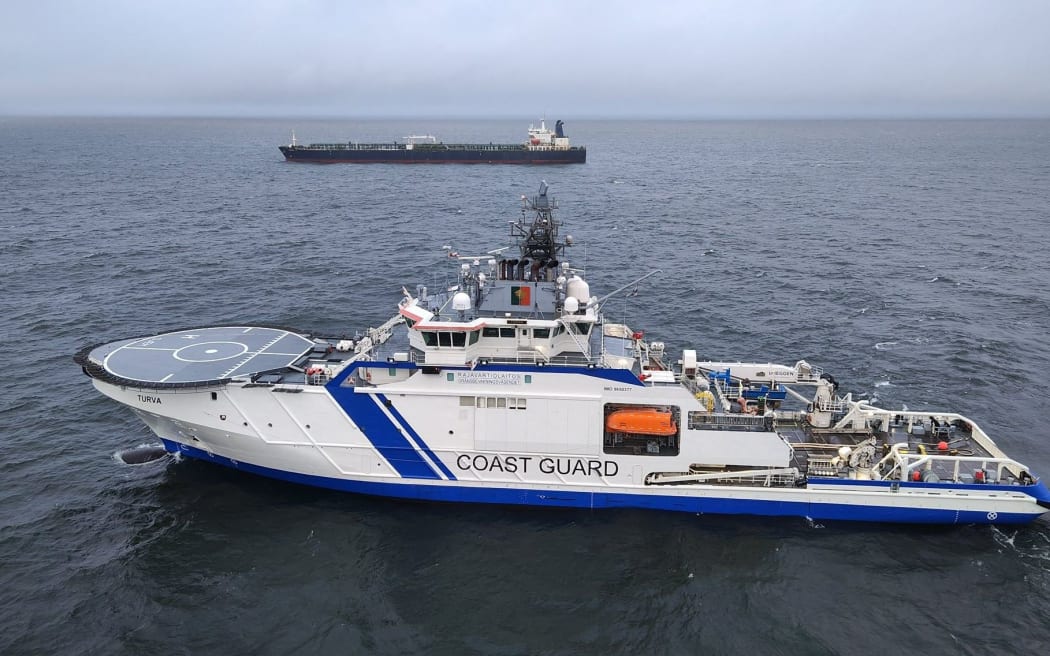
A Finnish Border Guard ship near the Russian oil tanker Eagle S in Porkkalanniemi. Photo/Finnish border guard/AFP
"New Zealand is concerned about and opposed to Russia's use of a shadow fleet of vessels to circumvent sanctions and support its war on Ukraine. We recently joined the UK-led "Shadow Fleet" Call to Action in order to express these concerns."
Shadow fleet
The Eagle S, despite its Cook Islands registration, is believed to be part of what Western officials term Russia's "shadow fleet" – a group of vessels used to circumvent sanctions imposed following the invasion of Ukraine.
This fleet often consists of aging tankers with opaque ownership structures operating without Western-regulated insurance.
Finnish authorities have taken decisive action in response to the suspected sabotage.
Markku Hassinen, deputy head of the Finnish Border Guard, told a news conference: "Our patrol vessel travelled to the area and could determine visually that the vessel's anchor was missing."
The ship has since been escorted to Finnish waters for further investigation.

NATO Secretary-General Mark Rutte plans to enhance the alliance's military presence in the Baltic Sea. Photo/NATO.
The incident also has broader implications for regional security.
NATO Secretary General Mark Rutte announced plans to enhance the alliance's military presence in the Baltic Sea.
NATO support sought
Estonian Prime Minister Kristen Michal even suggested invoking Article 4 of the NATO Treaty, which involves consultation if any member state feels threatened.
News agency BNS quoted Michal as saying, "Our wish would be to receive reinforcements from NATO in the form of a fleet to act as a deterrent. "
The damage to the Estlink 2 cable has significantly reduced Estonia's power supply.
Finland's Fingrid company estimates that repairs could last until the end of July 2025, highlighting the potential long-term impact of such incidents on critical infrastructure.
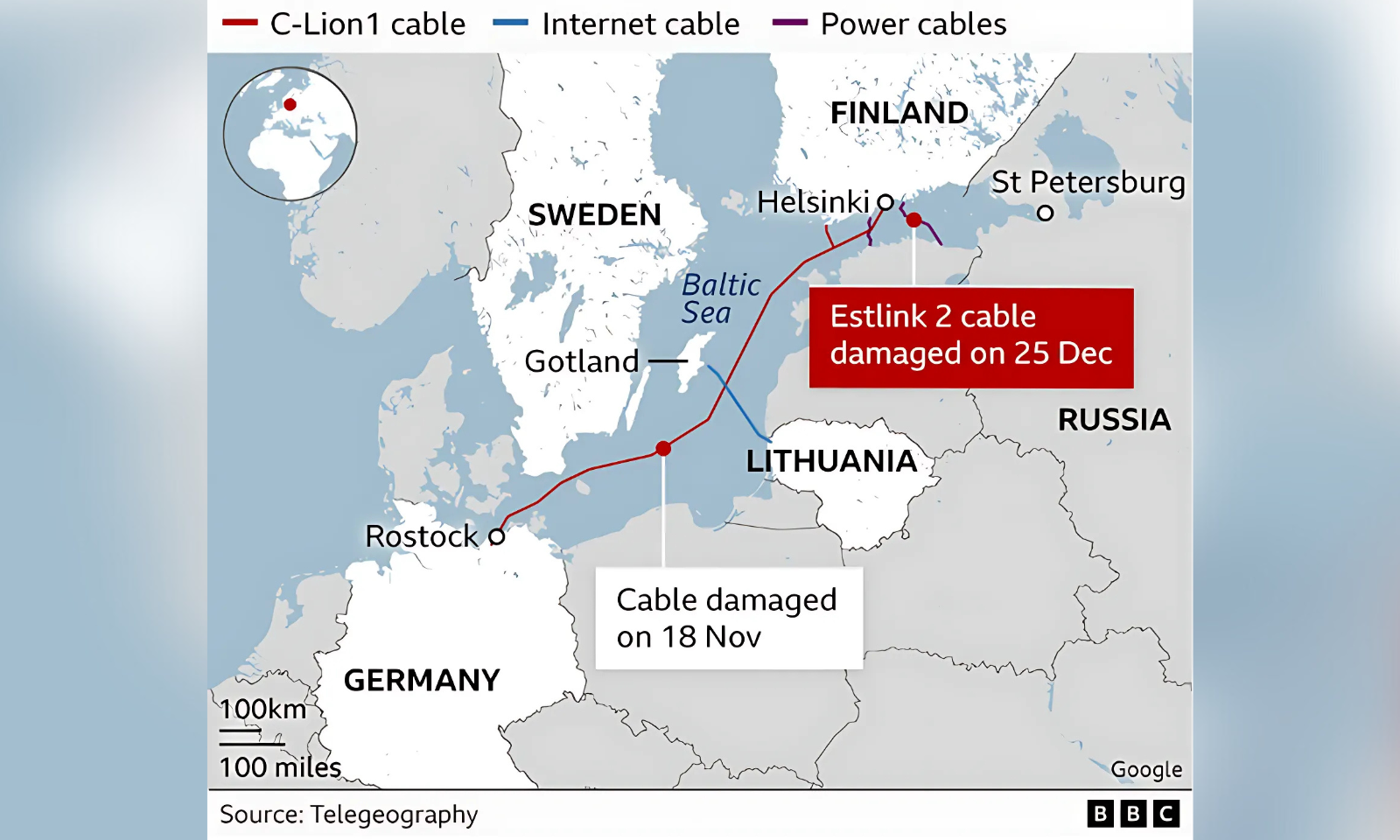
Map of damaged undersea cable. Photo/BBC/Telegeopgrahy
This event is not isolated. It follows a series of similar occurrences in the Baltic Sea, including damage to two data cables last month.
A Chinese ship, the Yi Peng 3, was suspected in those incidents. It is also believed to be part of Russia's shadow fleet operations.
According to some media reports, the vessel is claimed to be "filled with spy equipment" and contained "high-tech equipment for radio reconnaissance of NATO ships and even an aircraft on board".
It’s also being reported that the ship has previously dropped "sensors-type devices" in the English Channel.
German Foreign Minister Annalena Baerbock warned of the broader implications: "Almost every month, ships are damaging important undersea cables in the Baltic Sea.
"Ship crews lower anchors into the water, drag them for kilometres across the seabed for no apparent reason and then lose them when they pull them up," Baerbock said.